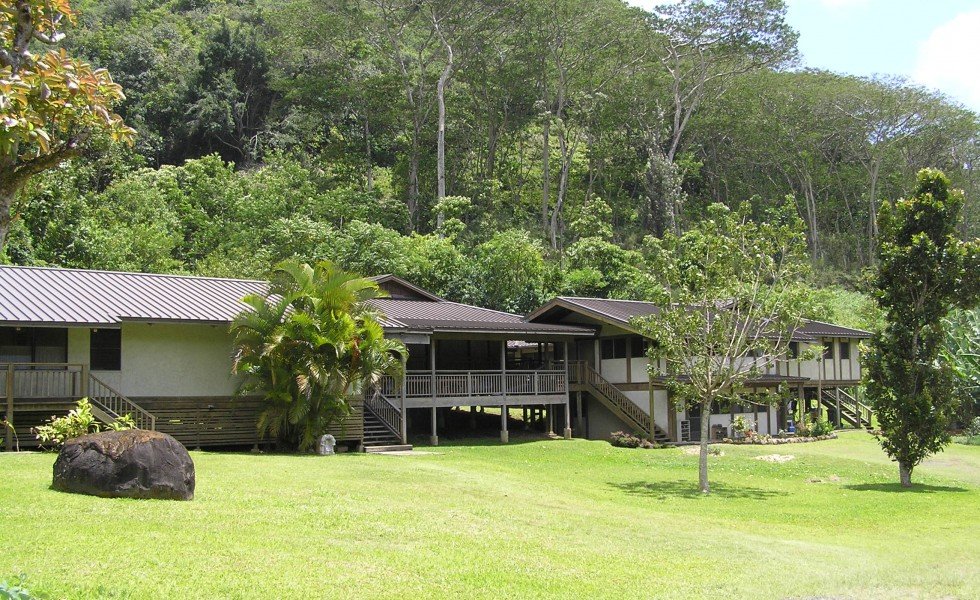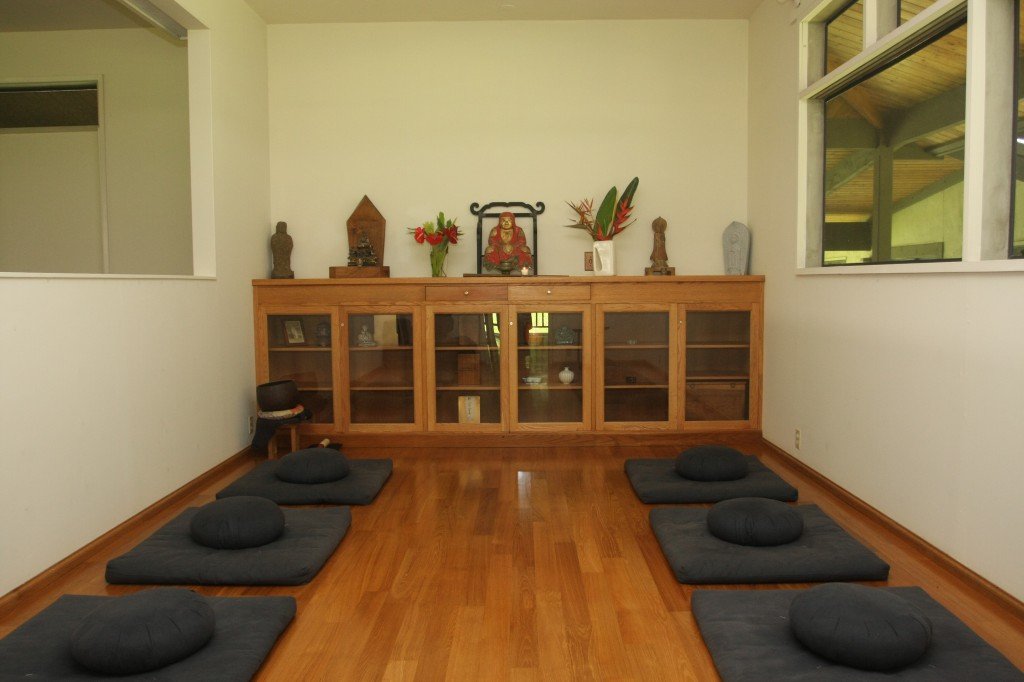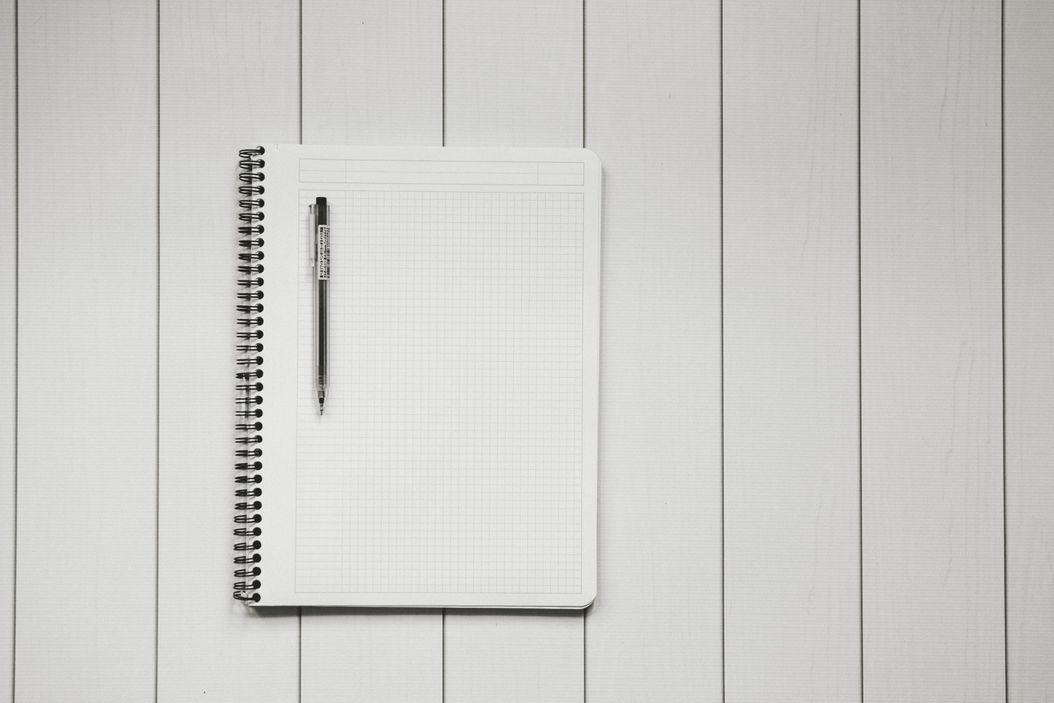As I drove my moped through the Palolo Valley through my new home in O’ahu on a brisk misty morning, I parked at a dead-end road on the damp grass of the 13-acre Zen center. Built in 1989, solely by volunteers, its humble appearance has a welcoming spirit. Not all of Hawai’i looks like this.
Most of my drives through Waikiki go quite differently. The vacationers in Hawai’i are escaping their busyness only to create more. The infamous and illustrious shopping street of Kalakaua Avenue brings tourists from across the world without hesitation to wait in line to enter the Hermes and Gucci stores.
Love birds and retirees dope up on caffeine. Even if they feel jittery, they like to be reminded of the feeling that fuels productivity. They bring their laptops on vacation just in case of an emergency but really they get separation anxiety without their smart technology.
Most folks I see strolling up and down the hustling and bustling streets of Waikiki are attempting to escape their reality. This becomes an experiment to maximize every moment there.
First-date Shane versus Hannah the Hawaiian
Showing up in his convertible, I went on a date with a resident of O’ahu named Shane wearing pristine white sneakers. He told me he had moved here from Los Angeles as an attempt to mellow out his Type A personality. It looked otherwise. One week into living in Honolulu, he had already ‘checked’ most of the boxes of shark diving, waterfall hikes, skydiving, and scuba diving. He expected that Hawaii would turn him into a more mindful and less obsessed planner. This total maximizer mentality is one I am familiar with.
When I brought up joining the Zen Center to Shane, he didn’t get the point. What is my return on investment for that time spent?
Types like Shane want to squeeze every moment out of the day. While waiting in line for our raw ahi in a poké bowl, he was irritated by the wait. With his phone buzzing the whole time from the confused Instacart delivery man who was lost, Shane suggested penciling me into his Google calendar for the next date instead of allowing the first date to even take place.
The amount of his busyness sucked any energy out of me. I felt exhausted on his behalf. I could tell by how he revved the engine at stoplights questioning the slow driver that he’s the type who would rather bike than walk to the beach. With a jam-packed itinerary, there is no time to check in to see if you actually want to do the next thing.
Immediately when I met Shane, he quickly identified with work coming from Silicon Valley. Of course, the obsession with his career couldn’t stay away.
In contrast, I met Hannah, a Hawaiian, at a local bookstore. She’s a kooky twenty-something dressed in a mish-mash of elements including a red Chinese Hanfu with toggle buttons and chopsticks to slick her hair back. Hannah shared about her love of boogie boarding, how her family raised her in Kailua, and the aspiration of her sister to someday own a plot of land large enough to share the multiple generations of her family together as a community. It wasn’t until the third time I met her we spoke about her job as a school teacher.
Instead of living to work, Hawaiian families work to live and connect
My Way of Pausing
I have lived in O’ahu for nearly five months after relocating here for a new job at the end of June. After my contract ended, I knew the odds of my return to this spec of land in the middle of the ocean would be slim. I’d bought a book on my flight over to Hawai’i called Do Nothing by Celeste Headlee. I didn’t have the time while living with 35 college students to even attempt to do nothing. I was too busy, and I needed Celeste’s advice. My First Date Shane tendencies were at an all-time high. I felt fed up. Was I burnt out?
Much like the Covid pandemic, I desired a long pause to reinstate the time with less doing. I was no longer an emergency contact for my job, so I didn’t need my phone. I had never felt more discomfort living agenda-less days. By choosing not to wear my watch, I let my stark tan line fade away. I sat in my stillness more. This started with joining the Zen temple.
My intention with signing up for Zen Buddhist orientation was to see what would surface below the languishing feeling I’d felt in my life. I was hoping it would ‘fix’ all of my tendencies to be productive. I wanted to reinvent my relationship with my career. I kept feeling this pit in my tummy that I am wasting my life and losing precious time.
Outside the Temple
My time in the temple wasn’t as I expected.
Before stepping onto the stairs to enter, I was instructed by Jacobey to remove my slippers, like any other private residence in Hawaii. Next, I was given a tour of the meditation center, also known as a sangha. There was a Japanese tree in the back with roosters running around below it. The walls were all neutrally colored with brown wood. The zendo room, where the daily zazen practice takes place, is barren and hardwood-floored. The perimeter has square cushions six feet apart with round cushions on top of them to sit comfortably.
I was wearing too many bright colors with pink flowers printed on my flowy pants. The other nine newbies present at the orientation also stuck out in our drab surroundings.
Next, we went around the circle introducing ourselves along with what brought us in. Reasons from the group varied from desiring community, craving spiritual awakening, or seeking guidance further than the voice of Sam Harris on the solitary Waking Up mobile app. My main reason was curiosity. I was seeking a foundation for stillness in my life.
As I entered the zendo for my first zazen, I felt naively hopeful. The scent of incense made me feel warm. I was shown multiple positions to sit on the cushions, ways to add cushions to be comfortable so that when our mind inevitably became uncomfortable, we’d have less to worry about in the physical world. Jacobey had innately flexible limbs and could sit in a lotus with crisscrossed legs intertwined. My limbs will never bend like that.
Before beginning, we turned ourselves to face the walls that all had windows apart from where the master sat at the front next to the Buddha statue. Because we were all far away, only 13 people could sit inside the zendo.
Clark suggested counting the breath only on the exhale this time instead of both the inhale and exhale. I closed my eyelids just enough so that a sliver of light could enter and attempted to meditate. While I sat there, I became uneasy. Not only was my leg falling asleep but the time felt like it was never going to pass. Did the timer actually hit ‘go’ to track the session? I wanted it to be over. Then the chime went off and we walked in silence slowly in a single file train around the room for five minutes. I felt like I was in kindergarten again.
Was that how it was supposed to go? Was that the best use of how to spend my time?
Time Obsession
My relationship with obsessing over time started at a young age.
I remember swimming before walking. It was always me against the clock to see improvement and set personal records. When I made it to the preliminary finals each summer, I became even more motivated to win a boombox for my Britney Spears CD, a new game for my Nintendo DS, or an iTunes gift card.
It’s so easy to track time. On a stopwatch, the numbers don’t lie. That’s why I was obsessed with math and committed four years of my life to business school for a degree in finance. This was only further amplified during my stint in management consulting. Each week I’d send in my timesheet tracking the percentage of my time that was utilized with client-facing projects.
Slack-a-saurus Syndrome
Slack-a-saurus is a phrase inborn to my family’s speech. I don’t know when exactly it was created, but it’s a part of the Vermet vernacular. The phrase comes from a family of sailors where if there is a loose line on the sail of the boat from being inattentive, others will pass you. The slack on the rope attached to the sail isn’t pulled taught with tension to create the most speed. This implies that we are all signed up for the regatta of life all the time racing. We’re always “on the clock” in essence.
Freelancer Mentality
This past year living in Chicago, I became a freelancer. After starting my own sole proprietorship business, I wore several different hats: producing a podcast, managing an online course, and sharing social media content. With each contract created with my clients, an important factor that’d go into each was how much money I’d earn per hour. With this model, it was my first impulse to think about if I hadn’t gone to do three hours of a Zen Buddhist orientation, I could’ve made 100 dollars and some instead.
Was this how it was supposed to go? Is this how I should be spending my time? If I hadn’t been meditating for three hours at a Zen Buddhist orientation, I could’ve made $100 consulting instead.
As I started to get paid more money as a freelancer, the temptation to work longer hours only increased. My time working was more profitable than my time spent with leisure.
When I see time as money, the implicit feeling of guilt is ever-present. I feel wasteful to do anything that is unproductive and unprofitable. Where’s the return on investment for sitting in a temple?
When we simply sit without actually looking at the clock, time is experienced much differently.
I know, it’s cliché that time flies when you’re having fun. On the counter, it slows to a torturous crawl when watching the clock. Why is it so uncomfortable to sit in silence? It becomes seemingly unbearable. When will it be over? Why do I want more of this pain or discomfort, sitting in silence?
I kept telling myself the reason is to hone my attention and redefine my relationship with time.
After we were done walking in circles, Clark opened a dialogue before the next session and casually shared an insight:
“Instead of paying attention, be attention.”
I looked around, and everybody else reacted to it as if that was common knowledge. It was the most profound statement I’d heard.
I wanted to ask so many questions. What does that mean? Isn’t everything in life a transaction? I resisted the urge because I knew the next round needed to begin. We were supposed to be channeling our inner stillness and silence. My inner dialogue had felt so much confusion.
Warped senses and lost in time
We sat back down for another round of zazen in the zendo.
This time around was even more challenging. The first half was so still with no chatter, tending to my breath and body. It felt like frozen time as an icicle slowly melting drip by drip in a shining ray of sunlight. The skeptical part of my brain obsessed with utility fell silent, and I felt conscious without expectations of what to be thinking other than what the mind gravitated towards.
Then came the roadblock where I snapped into feeling like I was paying attention to concentrating on my breath. It was Halloween and I had no idea what I was going to wear that night. Also, what was that person’s name sitting next to me? The more I let the thoughts of life flood into me, the time flew by that much faster. I was no longer zoned into the present while thinking about the future. The calmness vanished into nervousness by thinking about what was needed to get done after this moment.
I recognized that this procrastination of my productive future self was sidetracking and inducing stress on the present moment. This experience was not serving me.
I thought I had meditated for an hour but it was a measly 15 minutes. Time had slowed more than I’d ever felt it. My perception of time was completely hijacked. Was I in the matrix? I was caught in self-doubt.
This is why instead of viewing life as a transaction of time, it can instead be about being attention. This has meant for me to redefine what attention is and to air on being present. I take intentional periods of time to be nostalgic or daydream and imagine the future, but I catch myself while pursuing an activity or conversing with someone to be mindful. I try my best to show up as my whole self, knowing that I can let my mind drift in the morning as I journal my morning pages.
Losing hobbies that enrich our lives purely for joy.
When we bias for speed and efficiency we lose what makes us human: introspection and intimacy. Time and focus are essential for relationships. Instead of seeing idleness as laziness, let’s redefine what that means. Leisure is not synonymous with laziness. It is not a synonym for inactivity either. It can be time to play without a return on investment in mind.
I want to harness what it means to live to be human beings instead of human doings. We are always trying to speed up our pace of life and turn hobbies into goals rather than their mere pursuit for joy without an outcome in mind other than the present.
Through pausing and stepping off the trajectory of my career, I have realized that a new path can form. One that is uniquely my own in line with what I value and brings my purpose is more important than over-optimization or money-centric. This experience has allowed me to step away from my worldview to openly question the fragility of its long-term impact. I feel replenished in life around how to live and channel my presence and what questions I want to answer.
I know better what direction I want to sail my boat in. I have faith in the winds coming again to fill my sails and pick me up as I leave my underemployment with a more calibrated compass of what I am motivated by. I am grateful for my open mind that allows seeds to be planted in my future. This art of pausing in our busy world is one that I will nurture and explore for the rest of my life.
Thank you to my friends Dan McGlinn and Brendan Stec. The Writing Studio led by Michael Dean for his rounds of feedback for supporting this. Also to many others including Charlie Bleecker, Christine Carrillo, Christin Chong, Alexandra Allen, Emily Waguespack, and Ben Schneider. Thank you to book authors Celeste Headlee, Manoush Zomorodi, and Roman Muradov for inspiring these concepts.



